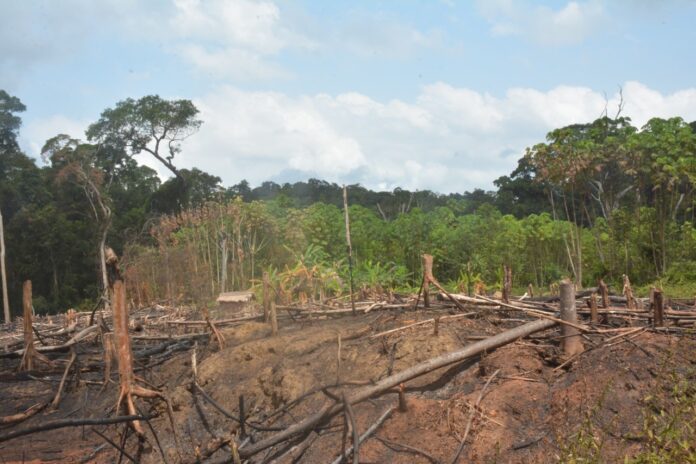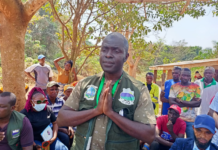By Louis Kuukpen UNDP Liberia Deputy Resident Representative
Monrovia, Liberia; 20 March 2023: Since it was proclaimed by the United Nations General Assembly in 2012, March 21 has been celebrated as International Day of Forest.
This year, the global theme is “Forest and Health” and calls for “giving, not just taking, because healthy forests will bring healthy people”. The day is set aside to raise awareness of the importance of all types of forests. But what does the celebration mean for Liberia?
Liberia is home to one of the richest floras in the Upper Guinean Region of West Africa. According to the UNFAO, 44.9% or about 4,329,000 ha of Liberia is forested. Of this, 4.0% is classified as primary forest, the most biodiverse and carbon-dense form of forest. Liberia’s forests represent over half of the remaining rainforests in West Africa, and they are characterized by moist evergreen forests and semi-deciduous forests cover.
Like all forests, Liberia’s forest is contributing significantly to the health of the population, especially the rural population. As many rural populations still depend on creeks and rivers for drinking, the forests help to purify the water. The forests also provide food and lifesaving medicines and improve the well-being of rural populations. The ability of the forests to clean the air and capture carbon to fight climate change is a health benefit for all.
It has been reported that the total number of plant species used for medicinal purposes globally is about 50,000. Many of these plant species are found in the forests of Liberia. According to research conducted by Aiah Lebbie et al in Rivercess County, Liberia, with 22 herbalists, about 40 different plants were known and reportedly being used by herbalist. These plants were being used to treat malaria, snakebites, ulcer, infections, diarrhea, and other illnesses (https://doi.org/10.5897).
(Interestingly, studies have shown that just a visit to a forest environment lowers blood pressure and pulse rate and reduces cortisol levels!) Despite the enormous health benefits that forests provide, the world is losing 10 million hectares of forest each year due to deforestation.
In Liberia, apart from the traditional drivers of deforestation (shifting cultivation, unsustainable logging, charcoal production, Plantation establishment, etc.), governance of the forest sector is a major challenge and needs to be addressed with urgency. Broad multi-stakeholder partnerships involving government, the private sector, forest-dependent communities, international development partners, and NGOs are needed to combat these drivers of deforestation and restore the integrity of Liberia’s forests.
UNDP is engaged in several initiatives aimed at the conservation of Liberia’s forests. As part of efforts to reduce deforestation, UNDP working with the EPA trained over one hundred women from Montserrado, Gbarpolu, Bomi, and Grand Cape Mount counties in the production and use of energy efficient cook stoves in 2021 and 2022. Energy efficient cook stoves can reduce the consumption of charcoal/fuel wood by fifty percent.
In 2023, another 45 women from Bong, Margibi and Grand Bassa counties will be trained. After the training, the women are placed in groups to start small energy efficient cook stoves enterprises.
UNDP has collaborated with other development partners to support sustainable forest management initiatives including the organization of the Forest Lab in December 2022 and the National Climate and Forest Forum held in Monrovia in February 2023. The two events brought forest stakeholders together to discuss key challenges facing the forest sector in Liberia, including weak governance in the sector.
The UNDP-Ministry of Commerce-EPA Livelihood and Job Creation program, the UNDP-EPA Biodiversity Conservation and Eco-tourism project, and the recently approved joint UNDP/FAO Community Based Forest Management project (funded by the Embassy of Sweden) are all implementing sustainable livelihood activities around protected areas and forest fringe communities as incentives for forest conservation.
As Liberia joins other countries to celebrate this year’s International Day of Forest on 21 March, there is a need for the Government and partners to come together to take strong actions to address the weak governance issues in the forest sector.
Equally important, partners must also work together to reduce the demand for charcoal in urban centers because charcoal production has become a major threat to forest conservation in Liberia.
Finally, all efforts to protect Liberia’s forests and natural resources should be coordinated within the framework of the country’s Nationally Determined Contribution (NDC), which needs to be adequately funded and fully implemented.























